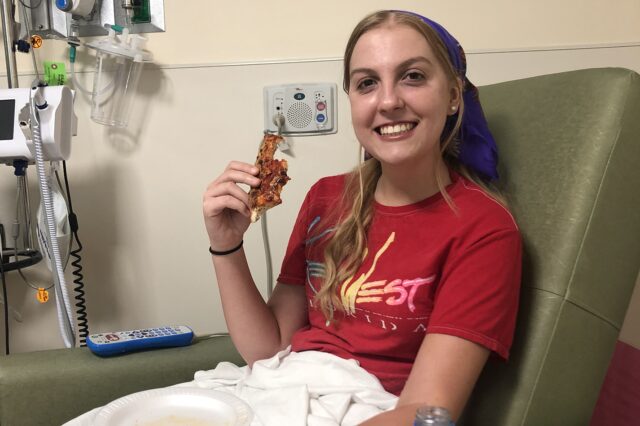Definition
Proton therapy is a kind of radiation used to treat cancer. Like other types of radiation, proton therapy kills cancer cells and stops them from growing.
Alternative Names
Proton beam therapy; Cancer - proton therapy; Radiation therapy - proton therapy; Prostate cancer - proton therapy
Information
Unlike other types of radiation therapy that use radiation rays to destroy cancer cells, proton therapy uses a beam of special particles called protons. Doctors can better aim proton beams onto a tumor, so there is less damage to the surrounding healthy tissue. This allows doctors to use a higher dose of radiation with proton therapy than they can use with x-rays.
Proton therapy is used to treat cancers that have not spread. Because it causes less damage to healthy tissue, proton therapy is often used for cancers that are very close to critical parts of the body.
Doctors may use proton therapy to treat the following types of cancer:
Researchers are also studying whether proton therapy might be used to treat other noncancerous conditions, including macular degeneration.
HOW IT WORKS
Your health care provider will fit you with a special device that holds your body still during treatment. The actual device used depends on the location of your cancer. For example, people with head cancers may be fitted for a special mask.
Next, you will have a computed tomography (CT) or magnetic resonance imaging (MRI) scan to map out the exact area to be treated. During the scan, you will wear the device that helps you stay still. The radiation oncologist will use a computer to trace the tumor and outline the angles at which the proton beams will enter your body.
Proton therapy is performed on an outpatient basis. The treatment takes a few minutes a day over a period of 6 to 7 weeks, depending on the type of cancer. Before the treatment begins, you will get into the device that will hold you still. The radiation therapist will take a few x-rays to fine-tune the treatment.
You will be placed inside a donut-shaped device called a gantry. It will rotate around you and point the protons in the direction of the tumor. A machine called a synchrotron or cyclotron creates and speeds up the protons. Then the protons are removed from the machine and magnets direct them to the tumor.
The technician will leave the room while you are having proton therapy. The treatment should only take 1 to 2 minutes. You should not feel any discomfort. After the treatment is over, the technician will return to the room and help you remove the device that held you still.
SIDE EFFECTS
Proton therapy may have side effects, but these tend to be milder than with x-ray radiation because proton therapy causes less damage to healthy tissues. Side effects depend upon the area being treated, but may include skin redness and temporary hair loss in the radiation area.
AFTER THE PROCEDURE
Following proton therapy, you should be able to resume your normal activities. You will likely see your doctor every 3 to 4 months for a follow-up exam.
References
The National Association for Proton Therapy website. Frequently asked questions. www.proton-therapy.org/patient-resources/faq/. Accessed July 1, 2022.
Shabason JE, Levin WP, DeLaney TF. Charged particle radiotherapy. In: Gunderson LL, Tepper JE, eds. Gunderson and Tepper's Clinical Radiation Oncology. 5th ed. Philadelphia, PA: Elsevier; 2021:chap 24.
Zeman EM, Schreiber EC, Tepper JE. Basics of radiation therapy. In: Niederhuber JE, Armitage JO, Kastan MB, Doroshow JH, Tepper JE, eds. Abeloff's Clinical Oncology. 6th ed. Philadelphia, PA: Elsevier; 2020:chap 27.


